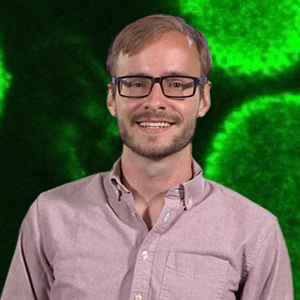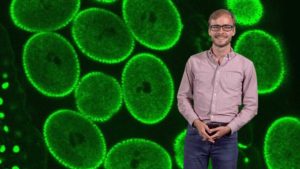Eric Hamilton completed his Bachelors degrees in Biology and Chemistry at Case Western Reserve University before joining the PhD program at Washington University in St. Louis in 2012. His interests in plant biology led him to join Dr. Elizabeth Haswell’s lab, where he has studied the mechanisms of plant pollination and pollen’s response to mechanical stress. Hamilton was awarded the 2015 AAAS Mass Media Fellowship, where he joined the Milwaukee Journal Sentinel and wrote local science stories on a wide range of topics. He created his own website and blo, that focuses on science communication. Hamilton is pursuing a career focused on communicating science engagingly to diverse audiences through print, multimedia, and programming.

Talks with this Speaker
Pollen’s Pressure Problem: Relieving Sexual Tension Through Evolution
Eric Hamilton describes how MSL8 acts as pollen’s pressure release valve, allowing pollen to survive drastic physical changes. (Talk recorded in May 2016)

Audience:
- Student
- Researcher
- Educators of H. School / Intro Undergrad
- Educators of Adv. Undergrad / Grad
Duration: 19:06




